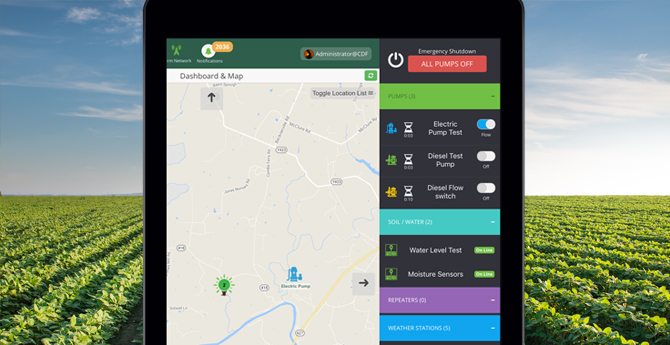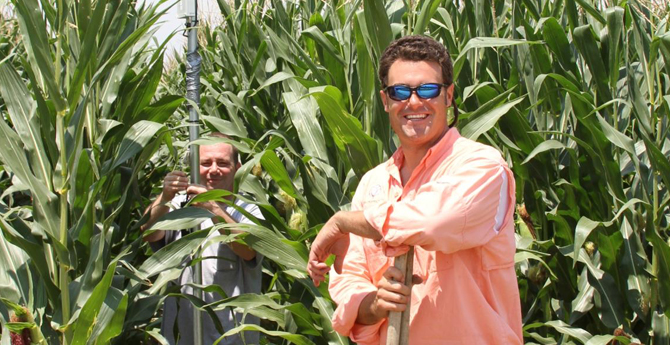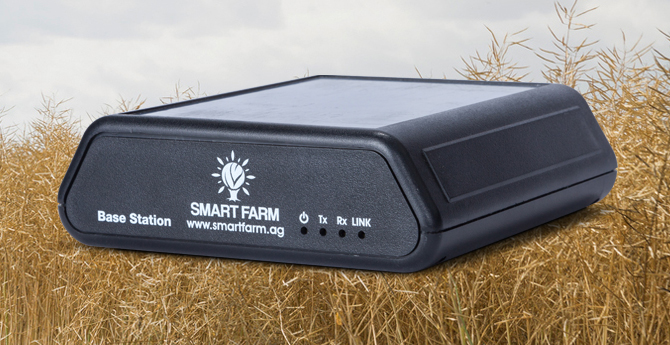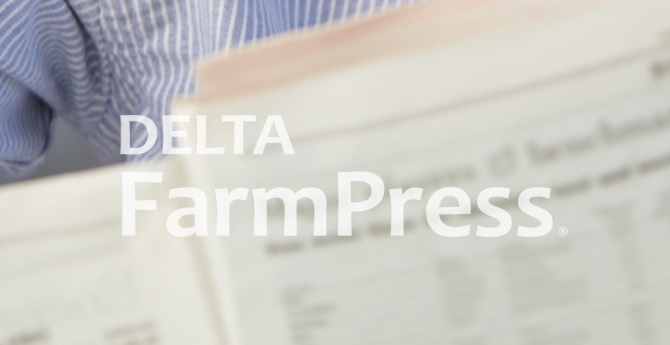The Problem To Be Solved
Farmers are under pressure to produce more food AND use less energy and water in the process. A remote monitoring and control system will help farmers deal effectively with these pressures.
Irrigated farms typically deploy a single pump to irrigate 80 to 100 acres of land. Many large farms, therefore, require 40 to 80 or more irrigation pumps spread over hundreds of square miles. Most are pumping ground water for irrigation purposes, most operate in remote fields, and trucks must roll to tend to them.
Ideally, each field should get just the right amount of water at just the right time. Under-watering causes crop stress and yield reduction. Overwatering can also cause yield reduction and consumes more water and fuel than necessary and leads to soil erosion and fertilizer, herbicide, and pesticide runoff.
Agricultural operations waste 60% of water consumed each year. Now more than ever, new technologies for water conservation must be adopted. According to U.S. government statistics, however, only 10% of irrigated farms use advanced water management decision tools, including precision irrigation controls and soil moisture/water level sensing devices. There are both state and federal incentive plans now in place to help increase those percentages, and we were recently awarded an Arkansas Conservation Stewardship Grant to do advanced research in soil and water level monitoring.
Case studies have shown precision irrigation has a 5%–8% impact on yield and a similar impact on operating costs. Smart Farm’s systems can be retrofitted on existing sites and provide immediate impact with a very short return on investment time period.







